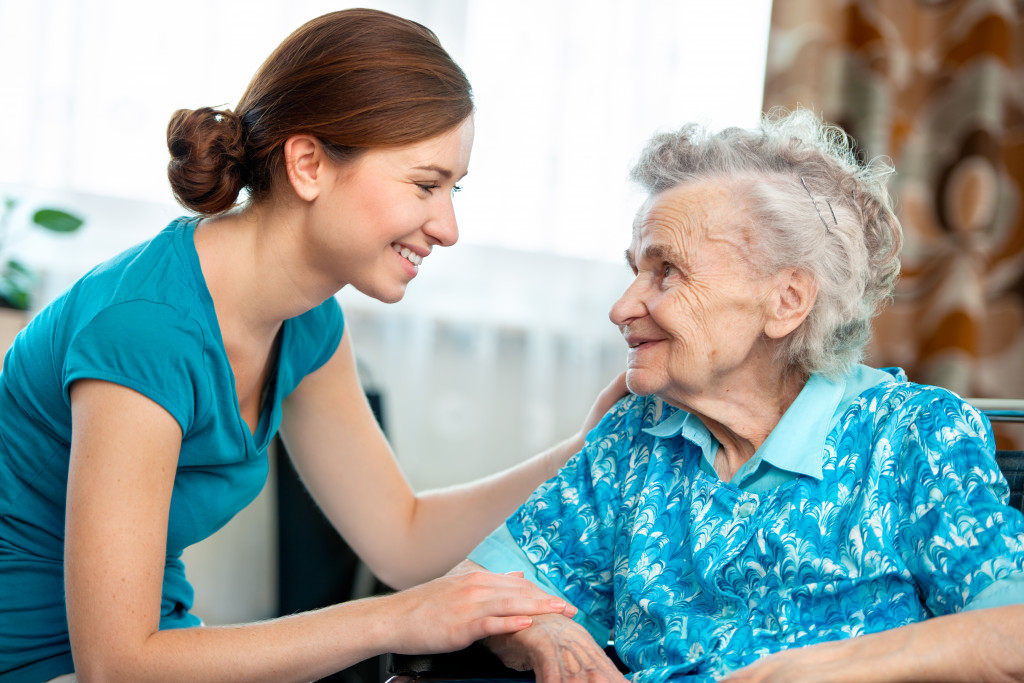Caregivers are often the unsung heroes of our society. They provide care and support to loved ones who need it, often without recognition or compensation. Unfortunately, this selfless act can sometimes lead to caregiver burnout.
Caregiver burnout refers to a situation where the caregiver gets exhausted. It can be caused by many factors, including lack of sleep, social isolation, and financial stress.
If you’re a caregiver struggling with burnout, it’s essential to seek help. This guide will provide tips on dealing with burnout and getting the support you need.
Give Yourself a Break
Being a caregiver can be an enriching experience. However, it can also be quite demanding, and it is not unusual for caregivers to experience burnout. If you are starting to feel overwhelmed, taking time is essential. Consider respite care, which can give you a much-needed break from your caregiving duties.
Respite care can take many forms, from in-home care to adult daycare. There are even overnight respite care options available. Whichever type of respite care you choose, taking some time for yourself will help you to avoid burnout and be a better caregiver in the long run.
Join a Support Group
Caregivers often put the needs of their loved ones before their own, which can lead to feelings of exhaustion and isolation. If you are a caregiver, it is vital to protect your well-being. One way to do this is to join a support group. In a support group, you will meet other people facing similar challenges.
You can share your experiences and learn from others in your shoes. Additionally, knowing you are not alone can be a tremendous source of comfort. Support groups allow caregivers to take a break from caring responsibilities and focus on their needs. If you are a caregiver, consider joining a support group today.
Set Personal Health Goals
It is important to set personal health goals to prevent burnout. These goals should include exercise, eating a balanced diet, getting enough sleep, and taking breaks. Exercise will help you to stay physically fit and cope with stress. Eating a healthy diet will boost your energy levels and help you to think more clearly. Getting enough sleep is essential for your overall health and well-being. Taking breaks will give you time to relax and rejuvenate. Setting personal health goals can prevent burnout and maintain physical and emotional health.

Set Realistic Expectations
As a caregiver, setting realistic expectations is essential to avoid burnout. When taking on the caregiving role, it’s common to want to do everything possible to ensure that your loved one is comfortable and well-cared for. However, it’s important to remember that you can’t do everything and that asking for help is okay.
Trying to do too much will only lead to exhaustion and resentment. Instead, focus on what you can reasonably accomplish each day and be sure to take time for yourself as well. Make sure to schedule regular breaks and use them to do something that you enjoy. Taking care of yourself is just as important as taking care of your loved one and will ultimately make you a better caregiver.
Use Relaxation Techniques
As a caregiver, you may find yourself feeling burnt out from time to time. It’s essential to find ways to relax and rejuvenate yourself, or you may start to feel resentful and angry toward your loved one. One way to deal with caregiver burnout is to use relaxation techniques. There are many relaxation techniques, so you can choose the one that best suits your needs.
Some standard relaxation techniques include yoga, meditation, aromatherapy, and massage. You may also want to try deep breathing exercises or progressive muscle relaxation. By taking some time out for yourself to relax, you’ll be able to better cope with the demands of caregiving.
As a caregiver, it is crucial to understand your limits to avoid burnout. Caring for a loved one makes it easy to feel you have to do everything and be available 24/7. However, this is not realistic or sustainable. Caregivers need to make time for themselves, even for just a few minutes each day.
This can be used for anything from reading a book to walking outside. It is also essential to ask for help when you need it. Many resources are available for caregivers, so don’t hesitate to reach out if you feel overwhelmed. Remember, you cannot pour from an empty cup. If you take care of yourself, you will be better equipped to care for your loved one.

